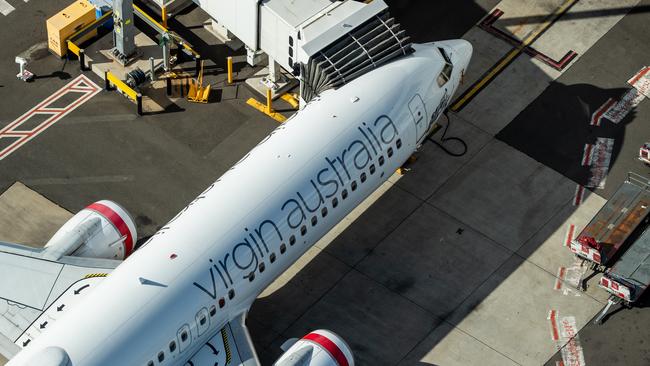
And that’s before a single aircraft has taken off or regulators have given the nod for Middle Eastern major Qatar Airways to take a 25 per cent in the rebooted Virgin.
Although Virgin has not yet found its way back to an ASX listing – that’s scheduled for some time next year – it’s arguable that much of that $850m in value has turned into blue sky for Virgin.
And it has largely come down to one person: Virgin Australia boss Jayne Hrdlicka. This then raises the question of why Virgin’s private equity owner, Bain Capital – which is looking for an exit – also wants a new chief executive.
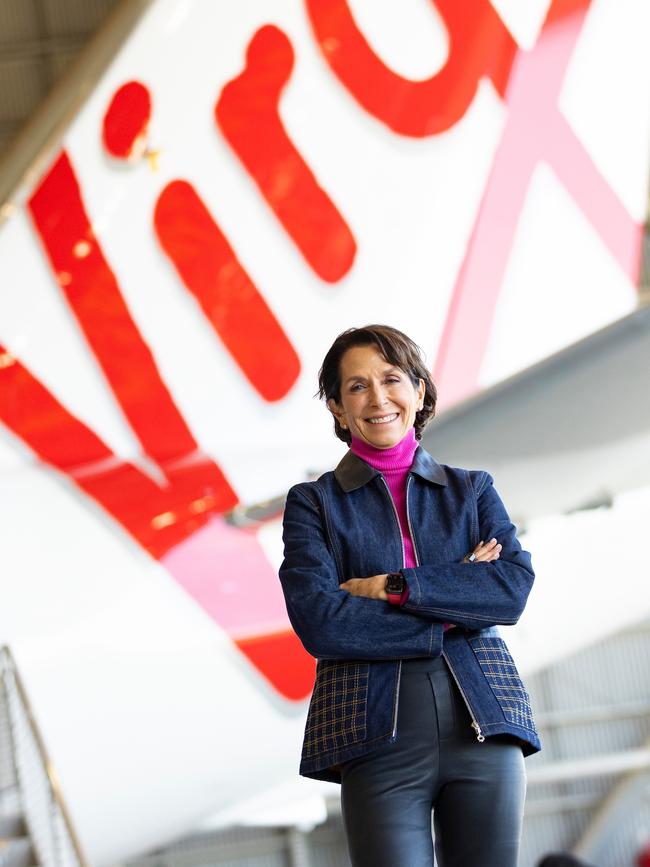
Hrdlicka was Bain’s hand-picked choice for CEO when it bought Virgin out of administration through the Covid-19 pandemic. But after not being able to get its initial public offering away last year, while Virgin was still in recovery mode, Bain’s Asia boss, Mike Murphy, made the surprising call to part ways with Hrdlicka.
Bain never gave a reason for the decision but it is believed tensions over management style had been building. That was back in February. Hrdlicka still doesn’t have an exit date and a search is still under way for a new chief executive.
Without a doubt the Qatar deal is a fillip for Bain, given it substantially boosts the value of Virgin as it prepares another run at a $3bn-plus sharemarket listing. Significantly, it has put the balance of power back in the hands of Hrdlicka.
It was Hrdlicka’s own personal relationship with the tough former Qatar Airlines boss, Akbar Al Baker, that got talks off the ground. It is understood Hrdlicka was first introduced to Al Baker, ironically, by former Qantas boss Alan Joyce when she was running the Jetstar offshoot mid last decade.
Al Baker, who over three decades built Qatar from a regional player into an international major, retired at the end of last year but his influence still looms over the airline.
Hrdlicka and Al Baker reconnected shortly after she took charge of Virgin Australia in late 2020. This led to an all important codeshare arrangement between the airlines in mid-2022, whereby Virgin acted as a domestic partner for Qatar.
In exchange, Virgin loyalty members could earn points on Qatar flights. This was a significant deal for an airline which was still reeling from the shock of its pandemic collapse.
Qatar links
Talks continued around how to evolve the relationship. But this took on a new direction a year ago when the federal government rejected Qatar’s bid to increase the number of flights into Australia. A cornerstone holding in Virgin became possible because Bain was keen to cash in on some of its stake, given delays in an IPO.
However, it was Hrdlicka who handled the negotiations, repositioned the airline and built the team that made Virgin an investable proposition.
She focused fully on building up an international business which is central to the Qatar investment. And this week it was Hrdlicka front and centre selling the Qatar deal’s merits, including laying the groundwork for the politics by talking up the competition benefits.
She will also be leading the release of Virgin’s full-year accounts next week, which are expected to reveal a surge in earnings and another generous dividend for Bain.
Hrdlicka, who has been keeping costs low, has also just signed off a key wages deal with Virgin’s pilots’ union, removing industrial uncertainty. This three-year deal delivers a 21 per cent salary increase over the next three years and comes in the face of massive wage inflation as airlines around the world scramble to lock in pilots.
Remember, this is all from a CEO who is on the exit ramp.
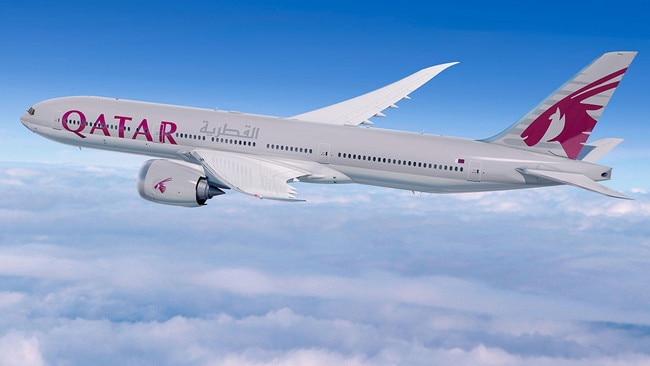
Qatar Airways itself has a new chief executive – the former Doha airport senior executive, Badr Mohammed Al Meer, who worked with Hrdlicka in the final stages of the equity deal. Qatar’s team has been told by Bain the search and transition to a new Virgin chief executive will take as long as is needed to ensure the Australian airline is well positioned.
However, the clock is running down for Bain to secure its exit window. On paper a new chief executive will need to start from scratch to be settled with Virgin’s management team and have their own strategy in place before investors would be prepared to buy into a new float.
So too, the Qatar deal will need to have cleared all the regulatory hurdles ahead of Bain’s run for an IPO into next year.
Last month, the 63-year-old Hrdlicka told a forum in Brisbane there was no date set for her exit. Tellingly, she said she had nothing lined up after Virgin but planned to spend more time with her sons and on her outside role as chair of Tennis Australia.
While Bain is the financial winner from the deal, the Qatar equity injection makes Virgin a more valuable business.
Having a well-resourced cornerstone shareholder gives Virgin Australia more financial muscle, and the credibility and confidence to compete against Qantas – an airline that is three times its size.
Breaking free
Since its recovery, Virgin has been forced to modify its pre-pandemic strategy of burning shareholder funds aggressively while attacking Qantas’ market share. This had fuelled the airline wars of the past decade, whereby travellers were the winners with cheaper flights.
Today, Virgin under Hrdlicka is being managed for profit. It is a more cautious competitor as it goes after three segments: middle to premium leisure travellers, small to mid-sized business and value-conscious corporates.
Previously the airline was trying to be all things to all travellers, and lost losing millions of dollars on its own discount brand, Tiger Air.
Virgin is starting to outgrow the private equity fund that saved it. The Australian airline sits uneasy in Bain’s portfolio of consumer products that extends to a Japanese fashion retailer, a steakhouse and a discount furniture chain.
Leading up to its collapse, Virgin Australia had the problem of too many airlines on its share register. Previously it was backed by Singapore Airlines, Ethiad, Air New Zealand and, later, China’s HNA Group that also owned Hainan Airlines.
Both Singapore and Ethiad were at loggerheads, competing for Virgin’s traffic flying into Europe. Many of the shareholders were pulling in strategically different directions, and the lack of control meant the other airlines were unwilling to drive Virgin.
Qatar is a major investor in airlines around the world. It has a 25 per cent stake in the holding company behind British Airways and Iberia Airways, worth $US3.4bn ($5bn). It has 10 per cent in each of Cathy Pacific and South America’s Latam Airlines, and recently moved into South Africa’s Airlink. The Virgin stake – believed to be in excess of $500m – will now sit alongside that.
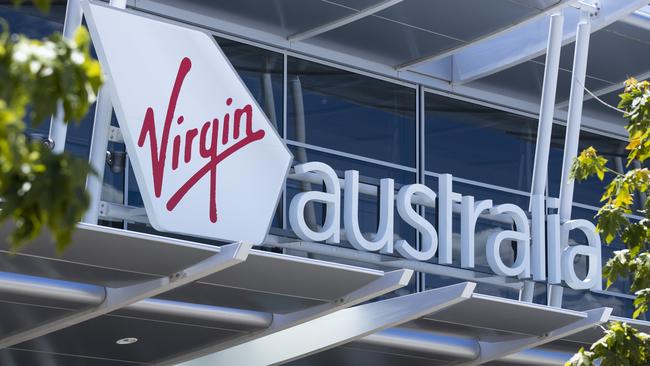
Virgin will now bring forward its international expansion plans with long-haul flying to Qatar’s hub in Doha next year, departing from Brisbane, Sydney, Melbourne and Perth. What has got Qantas worried, however, is the prospect that Virgin will activate “wet lease” flights to Doha. These would be Virgin flights but operated by Qatar crew, which would allow Qatar to bring substantially more capacity into Australia.
This would mean Virgin could sell a flight to Paris – or any number of European destinations – all flying through Qatar’s network from Doha.
Meanwhile, the links between Qatar and Virgin’s loyalty scheme offer more benefits to travellers, and the two airlines can benefit from staff training and international opportunities as well as procurement.
Virgin and Qatar have separately put a detailed submission to competition regulator the Australian Competition and Consumer Commission. Qantas is expected to lodge an objection, although Virgin is expected to drum up support from travel agents and airports.
The other test, and potentially the biggest hurdle, will be the Foreign Investment Review Board. However, Bain is US based and will still have effective control, even after the sell down. Richard Branson’s Virgin Group will keep its 5 per cent stake, and Brisbane-based Queensland Investment Corp also has a 2 per cent holding.
Given the public backlash when Qatar had its flight application rejected, Prime Minister Anthony Albanese and his, Treasurer Jim Chalmers, will be more sensitive to the political mood in an election year. Qatar will still need to negotiate the geopolitics.
With a single stroke, Virgin now has managed to re-tilt an aviation market that had been going all Qantas’ way. Now it’s all about the execution.
eric.johnston@news.com.au



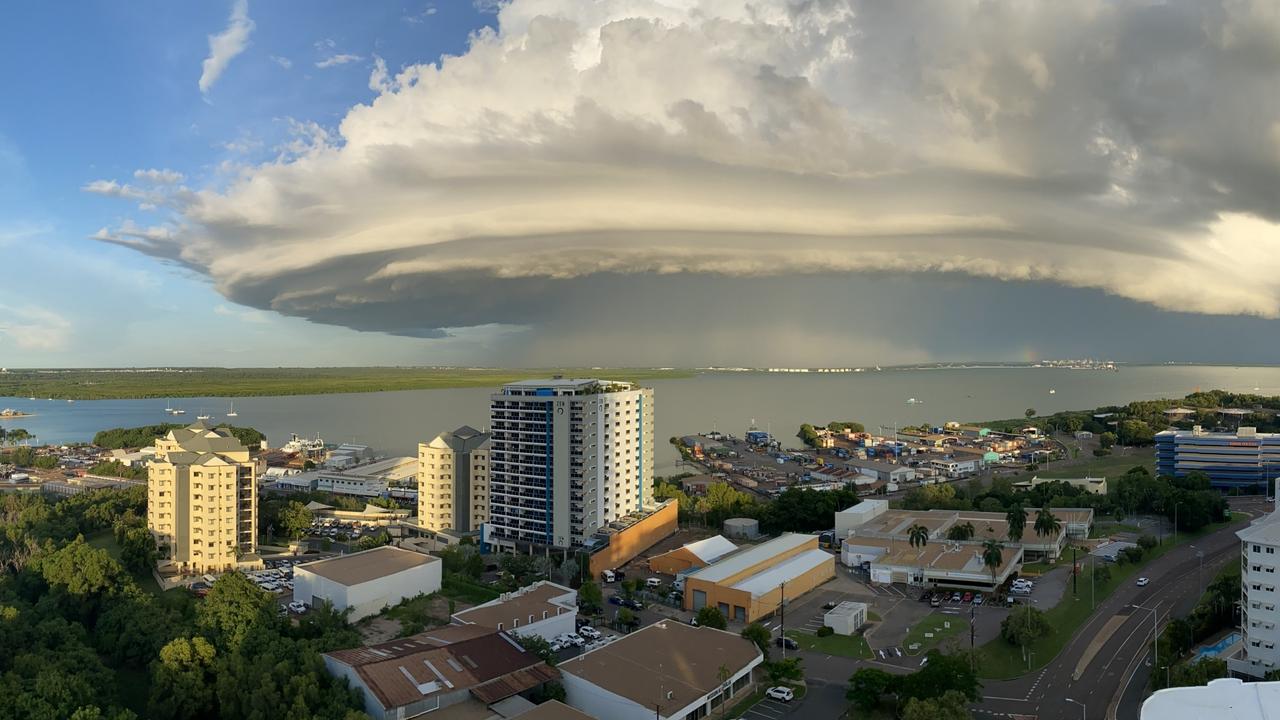
More than $850m has been wiped from the value of Qantas in just days, which is the market’s way of putting a value on the dogfight to come with smaller rival Virgin Australia.